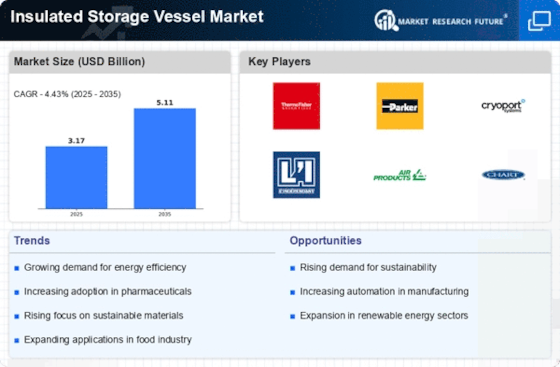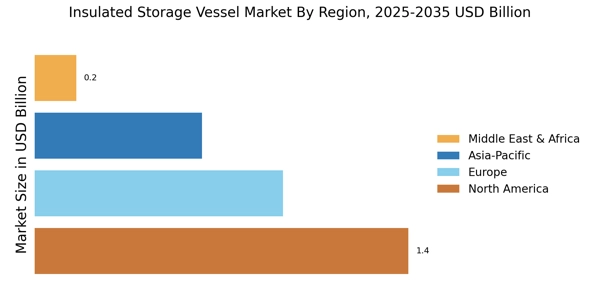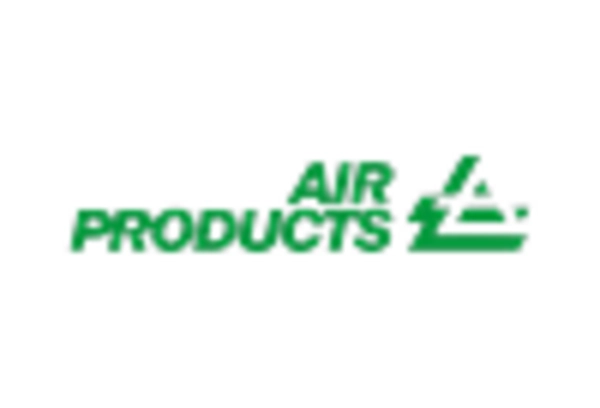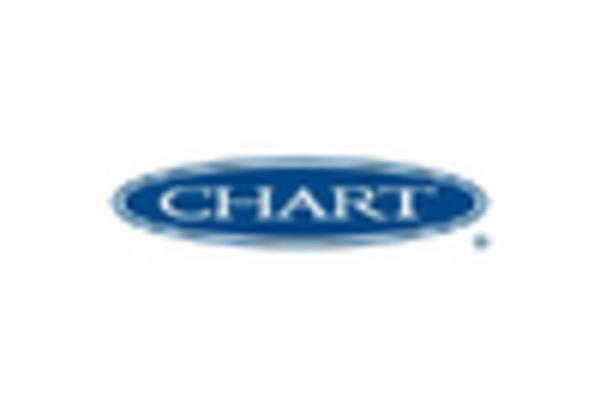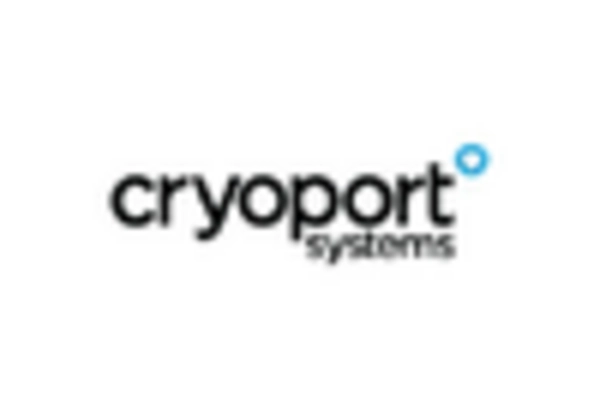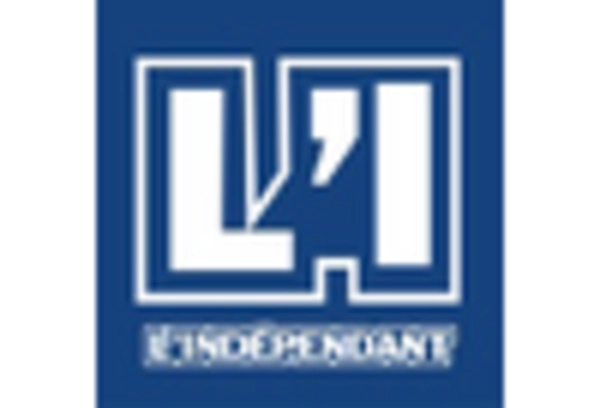Expansion of Cold Chain Logistics
The expansion of cold chain logistics is a critical driver for the Insulated Storage Vessel Market. As e-commerce continues to flourish, the need for efficient cold chain solutions has become paramount. The Insulated Storage Vessel Market is anticipated to grow at a rate of approximately 8% per year, reflecting the increasing demand for temperature-controlled logistics. This growth is particularly evident in the food and pharmaceutical sectors, where timely delivery of temperature-sensitive products is essential. Insulated storage vessels play a vital role in this ecosystem, ensuring that products remain within specified temperature ranges throughout the supply chain. Consequently, the rising investments in cold chain infrastructure are likely to bolster the demand for insulated storage vessels.
Growing Focus on Food Safety Regulations
The Insulated Storage Vessel Market is being propelled by an increasing emphasis on food safety regulations across various regions. Regulatory bodies are implementing stringent guidelines to ensure that food products are stored and transported under optimal conditions to prevent spoilage and contamination. For instance, the Food and Drug Administration has established specific temperature control requirements for food storage, which directly impacts the demand for insulated storage vessels. As a result, food manufacturers and distributors are compelled to invest in high-quality insulated storage solutions to comply with these regulations. This trend is expected to drive market growth, as adherence to safety standards becomes a priority for businesses aiming to maintain consumer trust and avoid potential liabilities.
Increased Investment in Renewable Energy Storage
The Insulated Storage Vessel Market is also benefiting from increased investments in renewable energy storage solutions. As the world shifts towards sustainable energy sources, the need for effective storage systems to manage energy supply and demand fluctuations is becoming increasingly important. Insulated storage vessels are being utilized to store thermal energy generated from renewable sources, such as solar and wind. This trend is supported by government initiatives aimed at promoting renewable energy adoption, which are expected to drive market growth. The renewable energy storage market is projected to expand at a compound annual growth rate of around 10% over the next decade, indicating a robust opportunity for insulated storage vessel manufacturers to cater to this emerging demand.
Rising Demand for Temperature-Sensitive Products
The Insulated Storage Vessel Market is experiencing a notable increase in demand for temperature-sensitive products, particularly in sectors such as pharmaceuticals and food and beverage. As consumers become more health-conscious, the need for effective temperature control during storage and transportation has intensified. According to recent data, the pharmaceutical sector alone is projected to grow at a compound annual growth rate of approximately 7.5% over the next five years, driving the need for insulated storage solutions. This trend is further supported by the growing prevalence of perishable goods, which require stringent temperature management to maintain quality and safety. Consequently, manufacturers are investing in advanced insulated storage vessels to meet these evolving market demands.
Technological Innovations in Insulation Materials
Technological advancements in insulation materials are significantly influencing the Insulated Storage Vessel Market. Innovations such as vacuum insulation panels and phase change materials are enhancing the thermal performance of storage vessels, thereby improving energy efficiency. These materials not only provide superior insulation but also contribute to weight reduction, which is crucial for transportation applications. The market for advanced insulation materials is expected to witness a growth rate of around 6% annually, reflecting the increasing adoption of these technologies. As companies strive to enhance their product offerings, the integration of cutting-edge insulation technologies is likely to become a key differentiator in the competitive landscape of the insulated storage vessel market.


